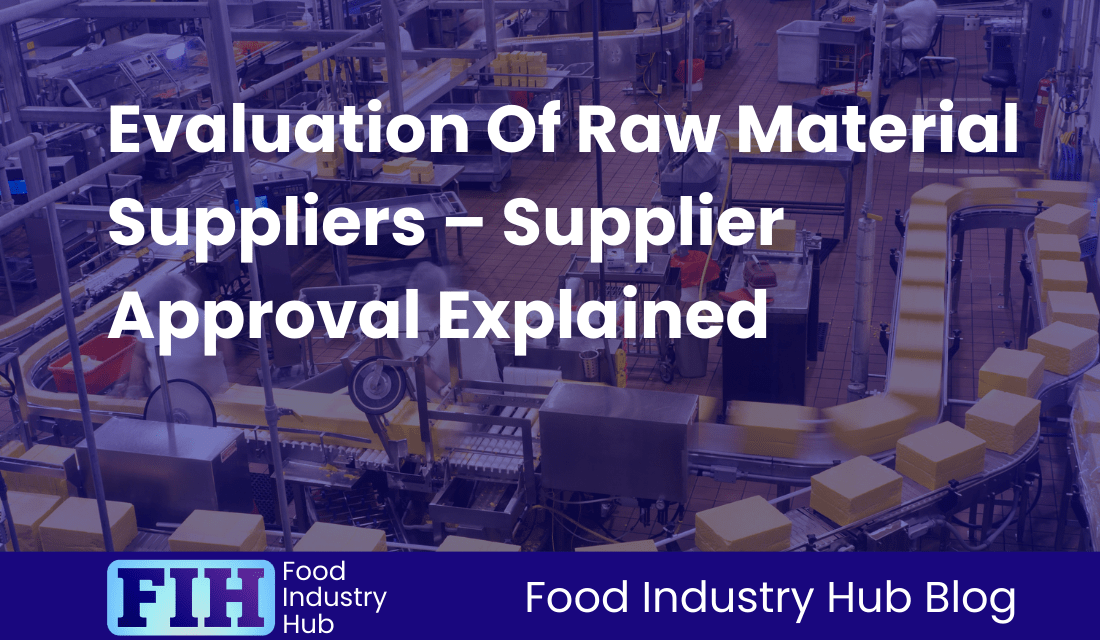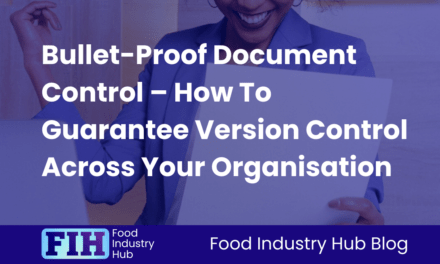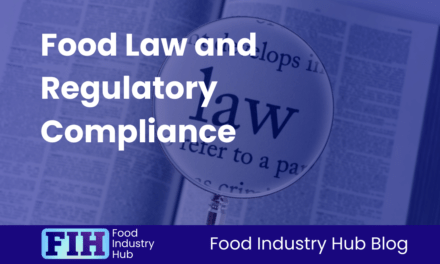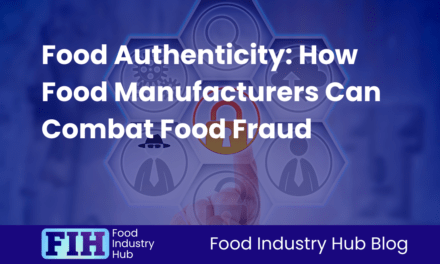Introduction
Supplier assurance processes form an important area of diligence for food manufacturers. The quality and safety or raw materials received from suppliers has a direct impact on the products manufactured from them, so evaluation of suppliers has a marked influence on the risk exposure of the receiving company. In this post, we’ll explore some of the considerations food manufactures should keep front-of-mind when approaching supplier approval decisions.
Table of Contents
Supplier Approval – Technical Requirements
All food manufacturers depend on raw materials to be able to function, but engaging with raw material suppliers necessarily exposes food businesses to a range of supply chain risks.
Supplier approval processes are subject to a range of technical requirements intended to protect against risks introduced by raw material suppliers. Applying proper selection criteria to suppliers prior to approval mitigates risk because it allows food manufacturers to preferentially source materials from reputable suppliers with adequate assurance systems in place, while avoiding higher-risk suppliers
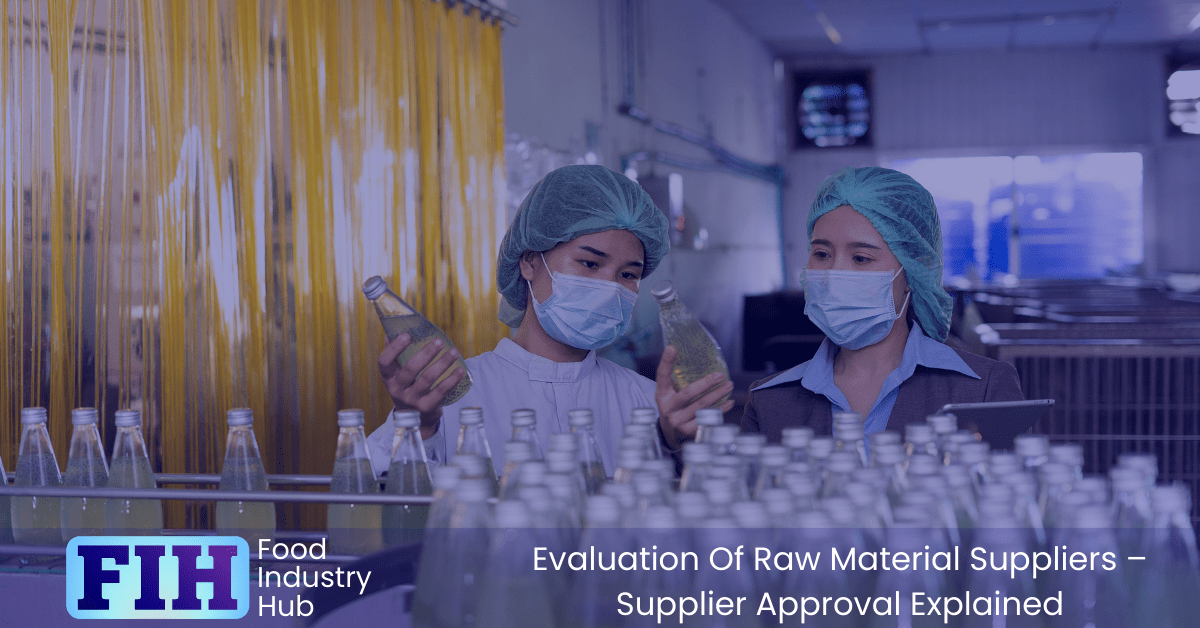
Approval Based on Certification
Raw material suppliers can often be approved solely on the basis of certification to a GFSI-benchmarked assurance standard such as BRCGS or IFS.
A valid certificate showing compliance with a voluntary assurance scheme recognised by the GFSI can be a very credible and reliable way for food manufacturers to validate that their raw material suppliers are operating in line with industry best practices. Certification to a GFSI-benchmarked scheme is a reliable means of supplier assurance because:
• The standards are formulated to assess the quality management system operated by supply sites, and they challenge a broad range of quality assurance systems. Compliance with any of these standards serves to demonstrate that the site has appropriate systems and controls, generally based on HACCP principals.
• The auditing bodies responsible for challenging compliance are independent of any particular food manufacturer – avoiding any conflict of interest. Auditor competency is assured through stringent training, and verified through shadow audits.
• The frequency of audit (normally annual) is sufficient to provide ongoing assurance for every certified site. Any non-conformities found are resolved as a condition for certification, and corrective actions must be found to be satisfactory by the auditing body.
• The validity of certificates can be verified against online directories.
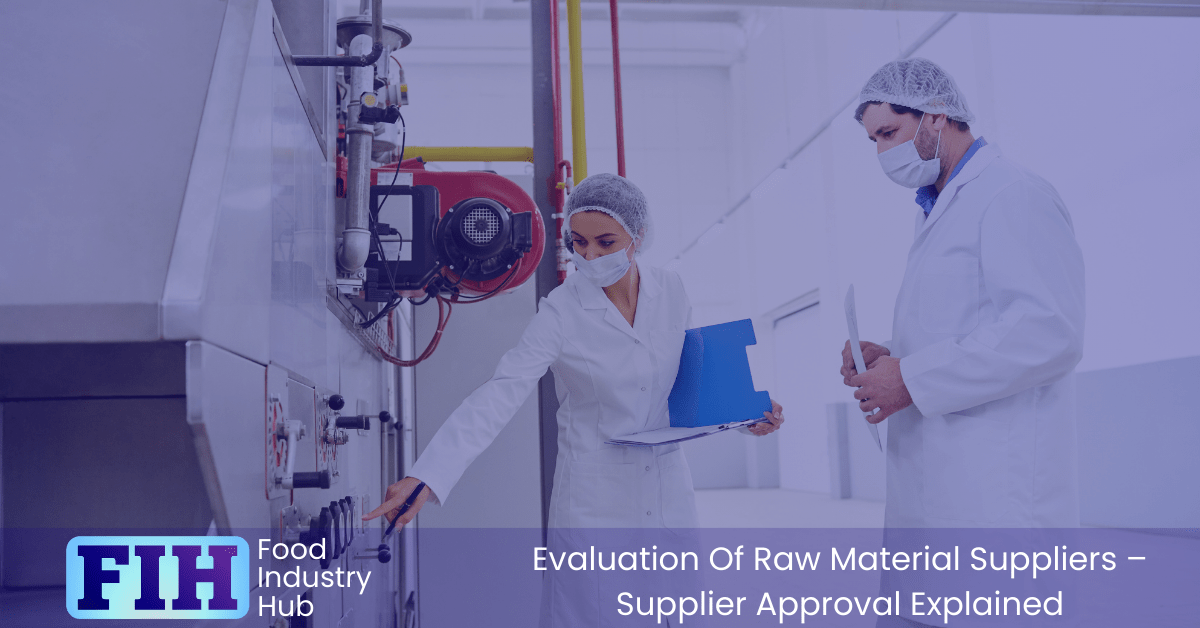
Sign-up for the Food Industry Hub Mail Service
We regularly produce new content for food industry professionals, and the Food Industry Hub Mail Service is the best way to stay up to date with the latest additions.
Signup today to be added to the Food Industry Hub mailing list.
Approval Based on Supplier Audit
Carrying out supplier audits can be a valid alternative to approving suppliers based on certification.
If supplier audits are used for approval, the scope of audit should include product safety, traceability, HACCP, product security and food defence, product authenticity, and good manufacturing practices. The person carrying out the audits should be experienced and demonstrably competent, and a full copy of the audit report should be retained.
Approving raw material suppliers based on 1st, 2nd, or 3rd party audit can offer similar assurances to certification to a GFSI-benchmarked standard, but there may be some drawbacks to be aware of in comparison to certified sites:
• The scope of audit may not be quite as comprehensive as applied to a GFSI-benchmarked scheme. Auditing for concepts such as ‘product safety’ could be broadly interpreted, and this can allow for significant variation in audit scope.
• 1st and 2nd party audits lack the auditor independence that 3rd party auditors bring with certification.
• Even if food manufacturers have access to an experienced and demonstrably competent auditor, that person is unlikely to be as well-practiced as an auditor operating on behalf of a certification body.
• Food manufacturers typically cannot commit the resources required to subject each of their suppliers to annual audit, so the frequency of audit is generally lower than for certified sites.
With all of this in mind, many food manufacturers elect to audit a selection of their suppliers in addition to requiring raw material suppliers to hold a valid certificate against a GFSI standard like BRCGS or FSSC 22000.
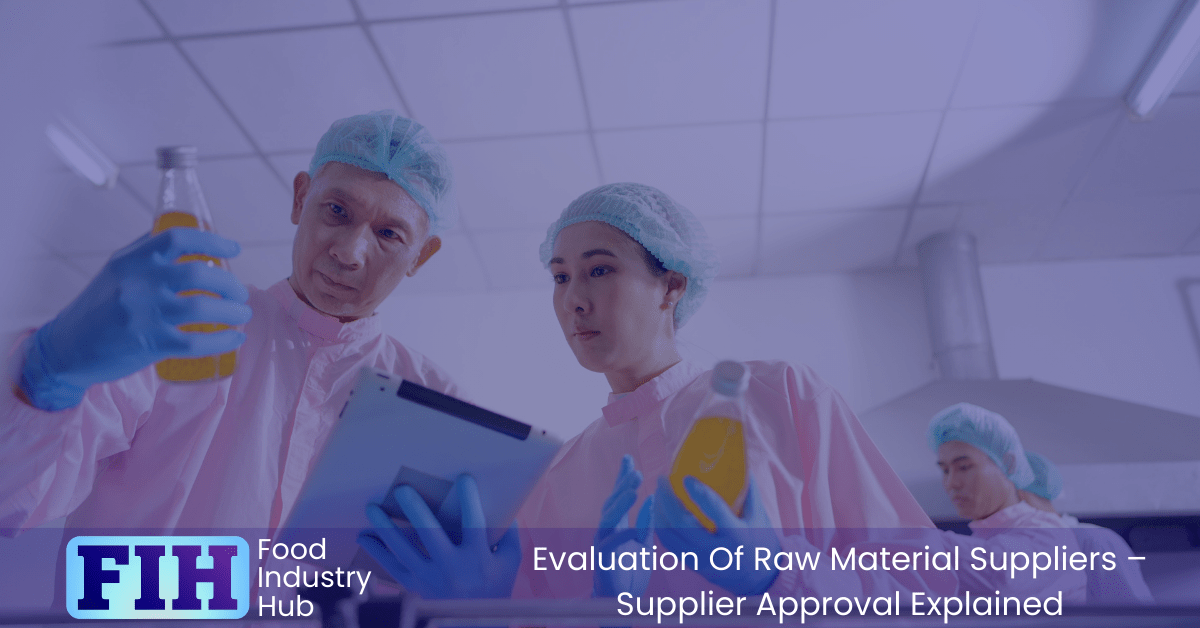
Approval Based on Supplier Assessment Questionnaire
Approval based on questionnaire offers the lowest level of assurance for supplier approval processes. Questionnaires should only be used where a risk-based justification supports the decision to rely on a questionnaire, and where the supplier has been identified as low risk.
Where questionnaires are used, the scope should include product safety, product security and food defence, product authenticity, traceability, HACCP, and good manufacturing practices.
It’s important to keep in mind that questionnaires rely on self-reporting. This means any approval decisions made on the basis of questionnaires are most susceptible to conflicts of interest and should be regarded as the least dependable method of supplier approval.
Any questionnaires used should be reviewed and verified by a demonstrably competent person.
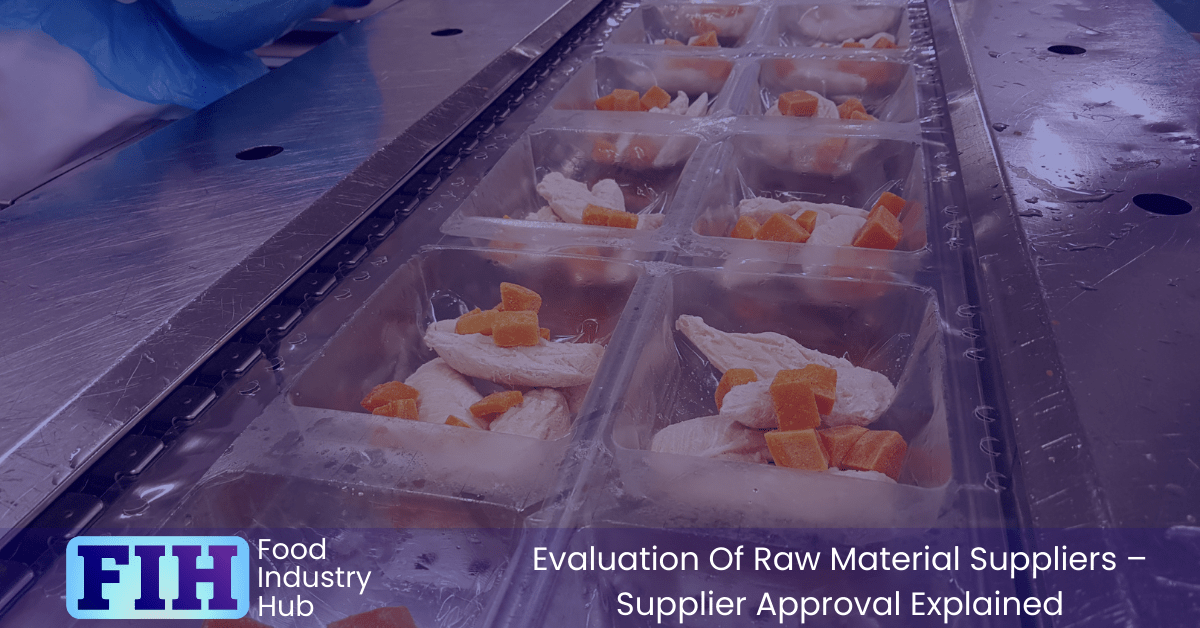
Considerations For Supplier Approval
When evaluating raw material suppliers for approval, food manufacturers should consider a variety of criteria to ensure that the supplier is able to meet their specific requirements for quality, safety, and sustainability. Some examples of approval criteria that may apply include:
Quality: The supplier should be able to demonstrate that they have a robust quality control system in place, including procedures for testing and inspecting product batches prior to release to ensure that they meet the specification requirements.
Safety: The supplier should be able to demonstrate that they have procedures in place to ensure the safety of the raw materials, such as food safety certifications like BRCGS or SQF. They should also be able to provide documentation that the raw materials are free from contaminants and meet regulatory requirements.
Sustainability: The supplier should have a strong commitment to sustainability, including environmental stewardship and ethical practices. This may include certifications to sustainability and ethical schemes such as Rainforest Alliance or Fairtrade.
Compliance: The supplier should comply with all relevant laws and regulations, including those related to food safety, environmental protection, and employment laws.
Reliability: The supplier should have a proven track record of reliability, including on-time delivery and consistent quality of raw materials.
Traceability: The supplier should be able to trace the raw materials back to the source and provide documentation on the origin of the materials, the growing and harvesting practices, and the transportation and storage conditions.
Innovation: The supplier should be open to new ideas and able to provide innovative solutions to meet the manufacturer’s changing needs.
Competitive pricing: The supplier should be able to offer competitive pricing for the raw materials.
It’s important to note that the criteria will depend on the specific needs of the manufacturer and the industry they operate in, and that manufacturers should prioritise the criteria that are most important to them. It should also be noted that some approval criteria will be voluntary, and some will be dictated by customer requirements or compliance scheme demands.
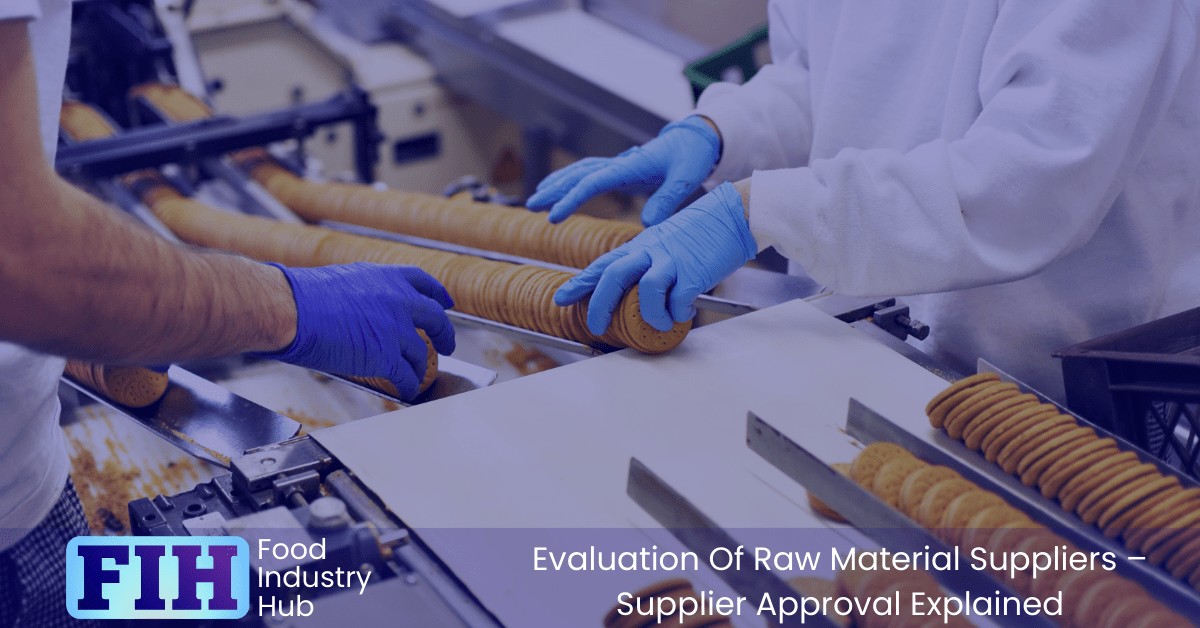
With Food Industry Hub Management Systems, you can simplify and streamline your quality management processes, helping to elevate standards throughout your operations.
Approaches To Approval Decisions
Evaluating raw material suppliers for approval is an important step in ensuring the quality and safety of the products that food manufacturers produce. It involves assessing the supplier’s ability to meet the manufacturer’s specific requirements for quality, safety, and sustainability.
Identify the raw materials needed: The first step in evaluating raw material suppliers is to identify the specific raw materials that the manufacturer needs. This should include information on the type of raw material, the quantity needed, and any specific requirements for the material, such as specific grades or certifications.
Research potential suppliers: Once the raw materials have been identified, the manufacturer should research potential suppliers to determine which ones are capable of meeting their needs. This can be done by searching for suppliers online, attending trade shows and industry events, or asking for recommendations from other manufacturers.
Review supplier documentation: Once potential suppliers have been identified, the manufacturer should review the supplier’s documentation, such as availability of certificates of analysis for each batch of material, to ensure that the supplier is capable of providing the required quality. This documentation should include information on the supplier’s quality control procedures, as well as any certifications that the supplier holds, such as food safety certifications.
Conduct on-site audits: After reviewing supplier documentation, the manufacturer should conduct on-site audits of the supplier’s facilities to verify that the supplier is capable of meeting their needs. This should include an assessment of the supplier’s quality control procedures and a review of the supplier’s production processes.
Evaluate sustainability practices: The manufacturer should also evaluate the supplier’s sustainability practices, including their environmental impact and labour practices. This can be done by reviewing the supplier’s sustainability policies and procedures, or by conducting an on-site audit of the supplier’s facilities.
Make a decision: After evaluating all of the information gathered about the potential suppliers, the manufacturer should make a decision on which supplier to approve. This decision should be based on the supplier’s ability to meet the manufacturer’s specific requirements for quality, safety, and sustainability.
Monitor supplier performance: Once a supplier has been approved, the manufacturer should monitor the supplier’s performance to ensure that they continue to meet the manufacturer’s requirements. This can be done by conducting regular audits, reviewing supplier documentation, and tracking key performance indicators (KPIs) such as on-time delivery and quality of the raw materials.
It is important to note that this process should be repeated periodically to ensure that suppliers are meeting the manufacturer’s requirements, and to make sure that there are no issues with the quality, safety, and sustainability of the raw materials. As with the evaluation criteria, some or all of the steps described may be implemented based on the perceived risk. 1st party audits may not always be considered necessary, for example.
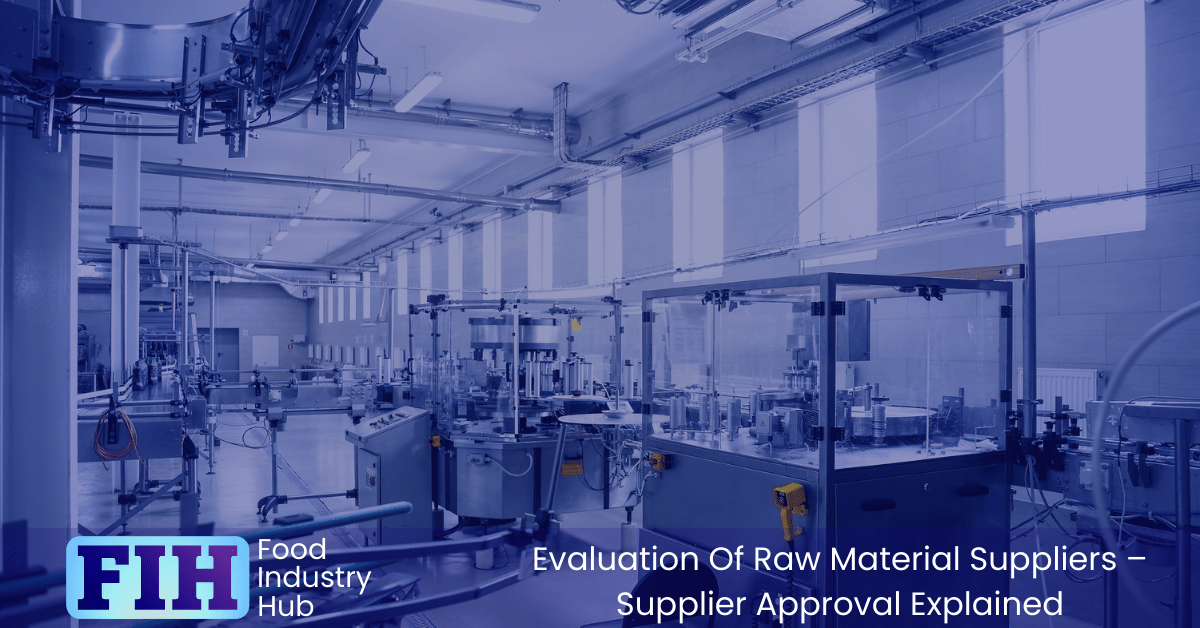
In Summary
Food manufacturers are exposed to quite a significant degree of risk through supply chain exposure, so supplier approval should be treated as a fairly high priority along with other supply chain risk mitigation activities.
If a supplier meets a food manufacturer’s approval requirements, that doesn’t automatically mean the supplier is approved. Approved suppliers are the suppliers who are listed on the active version of the list of approved suppliers – which should identify specific materials that each supplier is approved to supply.
Voluntary assurance schemes can be used to substantiate whether suppliers satisfy approval criteria – so for example, certification against a GSFI benchmarked scheme can be used to demonstrate that a supplier employs adequate quality assurance processes.
Each food manufacturer can enact their own approval criteria – so if a supplier is approved to supply into one facility, that doesn’t necessarily mean that it will meet the approval criteria for a different site.
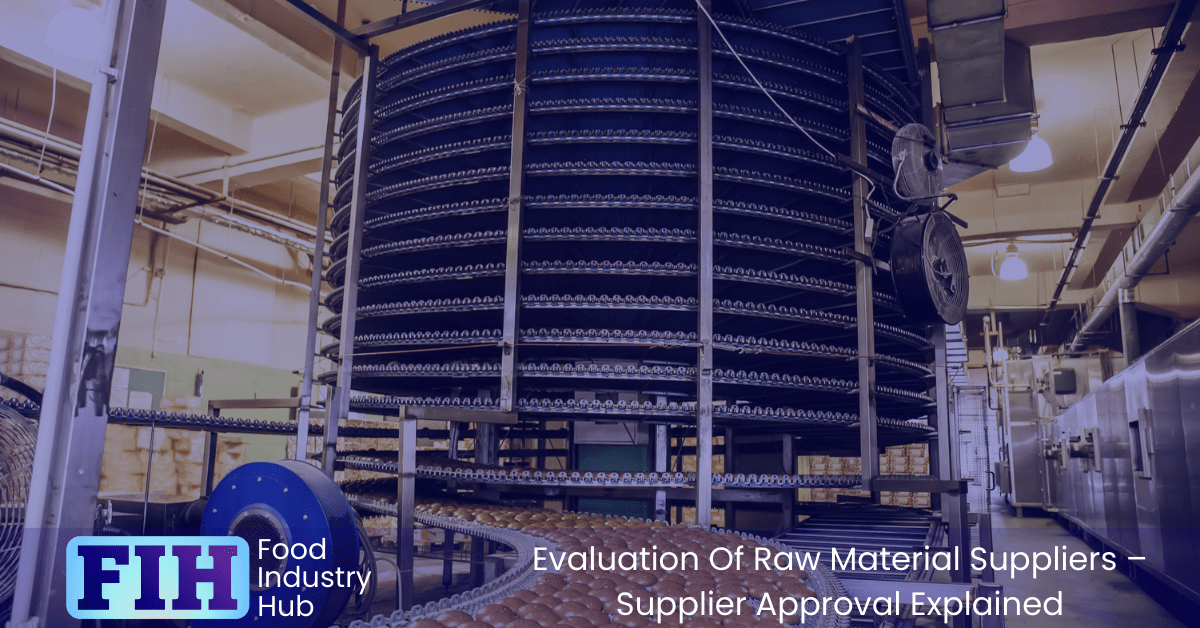
Further Resources
Food Industry Hub serves the food industry with a range of digital resources for the benefit of both commercial food manufacturers and food industry professionals.
For food manufacturers, we offer integrated management systems that give every user a direct interface with your QMS.
For food industry professionals, we provide an extensive signposting service in addition to informational content we hope you’ll find useful as you face new professional challenges. We have very ambitious plans to expand the range of services offered, and currently present informational content on management, safety and quality, and professional success.

